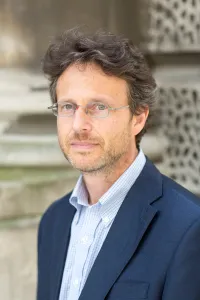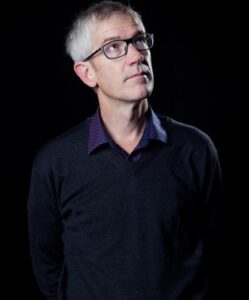SOLD OUT! PLEASE CONTACT US FOR THE WAITING LIST.
When we are in Italy, we miss London, when we are in London we miss Italy. Luckily, our two countries have become more similar in recent times: with five prime ministers in the last four years, the United Kingdom has taken some of the perennial Italian instability; and with a very serious, pragmatic banker as Prime Minister for a couple of years, for a while Italy has looked more English than England. If we add that many Brits have a passion for all things Italian since the time of lord Byron, and that many Italians proudly call themselves “anglophiles”, we can say that not even Brexit will be able to separate us: in fact, at least 350 thousand Italians continue to live in England, the second largest European community in this country. Still, we remain two profoundly different people. Here are three things that we Italians should learn from the Brits. And three things that perhaps the Brits should learn from us. Come to hear what they are.
Marco Varvello, UK Bureau Chief for RAI Italian Radio and Television. He holds a degree in Philosophy and started as a journalist in Milan at the daily newspapers ‘La Notte’ and ‘Il Giornale’, directed by Indro Montanelli. Working for RAI since 1987, Marco Varvello anchored the news for TG1 and was curator and editor of “Il Fatto” by Enzo Biagi. He was the RAI News correspondent in Germany, Berlin (2006-2014), London (1997-2005) and special correspondent in the US. He is now back to London as UK Bureau Chief since 2014. He has been awarded the “London Foreign Press Award” by the Foreign Press Association for the best programme in a foreign language about the UK. He wrote the novel ‘Dimentica le Mille e una Notte’, published by Rizzoli, which won the Literary award Ado-Lisant di Lille-Bruxelles. His most recent books are “Brexit Blues” (Mondadori), “Londra Anni Venti” (Bompiani) and “Passo falso” (RaiLibri). Marco Varvello is a member of the Italian-German Cultural Centre of Villa Vigoni.
Enrico Franceschini, born in Bologna in 1956, is a journalist and writer who has traveled the world for more than forty years as a foreign correspondent for the Italian daily “La Repubblica”, working in New York, Washington, Moscow, Jerusalem and London, where he is now living. He is the author of twenty-five books of fiction and non fiction, among which the recents “Londra Italia “(2016), “A Londra con Sherlock Holmes” (2020), “La fine dell’impero – ultimo viaggio in Urss (2021), “Tutti per uno – 33 storie per innamorarsi dell’Europa” (2022), “Elisabetta II, l’ultima grande regina” (2022) and a trilogy of thrillers, “Bassa marea” (2019), “Ferragosto” (2021), “Un’estate a Borgomarina” (2022). His last book is “Come girare il mondo gratis – un giornalista con la valigia” (2023), a memoir of the places and people he met in his long career. In 1993 he won Premiolino, one of the oldest and journalistic prizes in Italy, for his reportage on the coup in Russia. He has interviewed presidents and dictators, the first man on the Moon and the fastest man on Earth, Hollywwod movie stars and great novelists, he has covered wars, Olympic games and earthquakes, and he has been invited to dinner by Queen Elizabeth in Buckingham Palace.
A drinks reception will follow the talk
***
PLEASE NOTE: The following authors’ books are available to order and can be collected the day of the event.
Enrico Franceschini “Come girare il mondo gratis” and “Un’estate a Borgomarina” (in Italian).
Marco Varvello “Passo Falso” (in Italian).
To order your copy send an email to Ornella Tarantola at ornella101@hotmail.com not later than 20th September.
DISCLAIMER: By participating in a BIS webinar or live event you automatically agree to authorise recording of audio and visual content during the event and consent to subsequent use of the recording in the public domain. This recording may include questions, comments and poll responses provided by you during the event in addition to your name, voice, image or likeness. This recording will be made available after the conclusion of the live event as part of the BIS webinar archives, and will remain available indefinitely. If you do not wish to consent to the recording, please do not join the event or contact us to discuss your concerns.
Participation in the AGM is free of charge but registration is required. Please register by clicking the “book now” button.
The meeting will last approximately 20 minutes and it will be followed at 7 pm by the Lecture “Britaly: How the British See the Italians and Viceversa”.
For this lecture you need to register separately by heading the relevant event page.
2023 Charles de Chassiron Memorial Lecture
After a brief introducution to Giulio Romano’s artistic production in Mantua, this talk will focus on his practice as a designer of objects for the Gonzaga in Mantua. Building on his antiquarian knowledge and on Raphael’s design drawings, Giulio Romano used this field of his activity as a springboard for creative license. In most of his inventions for objects he manipulated natural elements to devise hybrid forms that could be read at different levels: as manifestations of his power of invention, as witty conceits stimulating conversation, and as celebrative references to his patrons. In this way, his pieces of silverware can be seen as animating the table and turning it into a space for the communication of intellectual, cultural and political contents. As designer of buildings, frescoes, stage sets, and even costumes, through his design of domestic objects Giulio Romano aimed at creating a “total work of art” which became a paradigm of civility and an example to follow for the European courts of the sixteenth century.
Guido Rebecchini is Reader in Sixteenth-Century Southern European Art at The Courtauld. His research focuses on sixteenth-century Italy, and has published on the arts at Mantua, Florence and Rome, including patronage, collecting, and artistic practices. His last book, The Rome of Paul III: Art, Ritual and Urban Development (Harvey Miller), was published in 2020.
A DRINKS RECEPTION WILL FOLLOW THE TALK

DISCLAIMER: By participating in a BIS webinar or live event you automatically agree to authorise recording of audio and visual content during the event and consent to subsequent use of the recording in the public domain. This recording may include questions, comments and poll responses provided by you during the event in addition to your name, voice, image or likeness. This recording will be made available after the conclusion of the live event as part of the BIS webinar archives, and will remain available indefinitely. If you do not wish to consent to the recording, please do not join the event or contact us to discuss your concerns.
SOLD OUT!
Italy invented fascism in 1919. In 1922 the March on Rome led to the first fascist government in history. These were events of global importance, which would affect the lives of millions. This talk will look at the history of Italian fascism through the stories of individual, ordinary and extraordinary people, with an emphasis on the violence of the black-shirts and its role in the rise of Mussolini to power.
John Foot is Professor of Modern Italian History at the University of Bristol. He is the author of numerous books on Italian history and culture, including Calcio: A History of Italian Football (2006); Italy’s Divided Memory (2009); The Man Who Closed the Asylums: Franco Basaglia and the Revolution in Mental Health Care (2015); and The Archipelago: Italy since 1945 (2018). His book Blood and Power: the Rise and Fall of Italian Fascism was published by Bloomsbury and by Laterza in Italian as Gli Anni Neri: Ascesa e Caduta del Fascismo in 2022.
A DRINKS RECEPTION WILL FOLLOW THE TALK
 Prof John Foot
Prof John Foot
DISCLAIMER:
By participating in a BIS webinar or live event you automatically agree to authorise photo and/or recording of audio and visual content during the event and consent to subsequent use of the images, recordings in the public domain. The recording may include questions, comments and poll responses provided by you during the event in addition to your name, voice, image or likeness. The recording as well as images will be made available after the conclusion of the live event as part of the BIS webinar archives, and will remain available indefinitely. If you do not wish to consent to the recording or photo shooting, please do not join the live event or contact us to discuss your concerns.
THIS EVENT IS NOW SOLD OUT!
A JOINT EVENT WITH VENICE IN PERIL FUND
On 14 July 1902 the famous bell-tower of St Mark, the city’s totemic symbol, collapsed into a pile of rubble, crushing Sansovino’s sixteenth-century Loggetta beneath it and narrowly missing the slender columns of the Basilica. News of the disaster flashed by telegram round the world, and the shock and distress felt by Venetians at the sudden loss of their landmark bell-tower was intense. After an immediate decision by the town council that the Campanile would be rebuilt exactly as it was and where it was, the work of recovery, planning and rebuilding took ten years. Sarah Quill tells the story in this illustrated lecture.
Sarah Quill has worked between Venice and London since the 1970s, building up an extensive photographic archive of Venetian architecture, sculpture and daily life. Her book, Ruskin’s Venice: The Stones Revisited was published in 2000, followed by a new and extended edition in 2015, which has recently been translated into Italian. She lectures regularly, principally on Venetian subjects, and is a trustee of the Venice in Peril Fund.
****
THE TALK WILL BE FOLLOWED BY A DRINKS RECEPTION
PLEASE NOTE: Doors will open at 6:30pm

DISCLAIMER: By participating in a BIS webinar or live event you automatically agree to authorise recording of audio and visual content during the event and consent to subsequent use of the recording in the public domain. This recording may include questions, comments and poll responses provided by you during the event in addition to your name, voice, image or likeness. This recording will be made available after the conclusion of the live event as part of the BIS webinar archives, and will remain available indefinitely. If you do not wish to consent to the recording, please do not join the event or contact us to discuss your concerns.